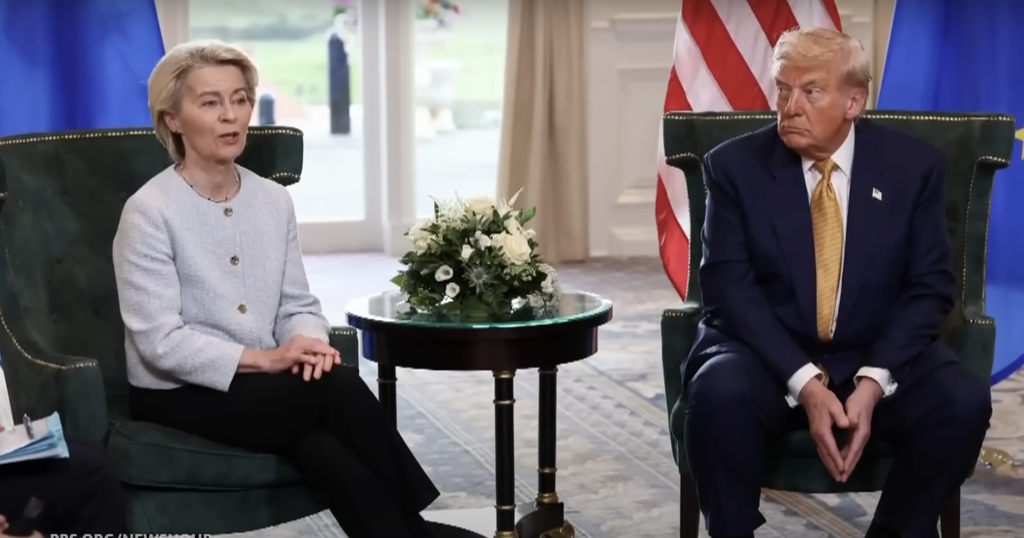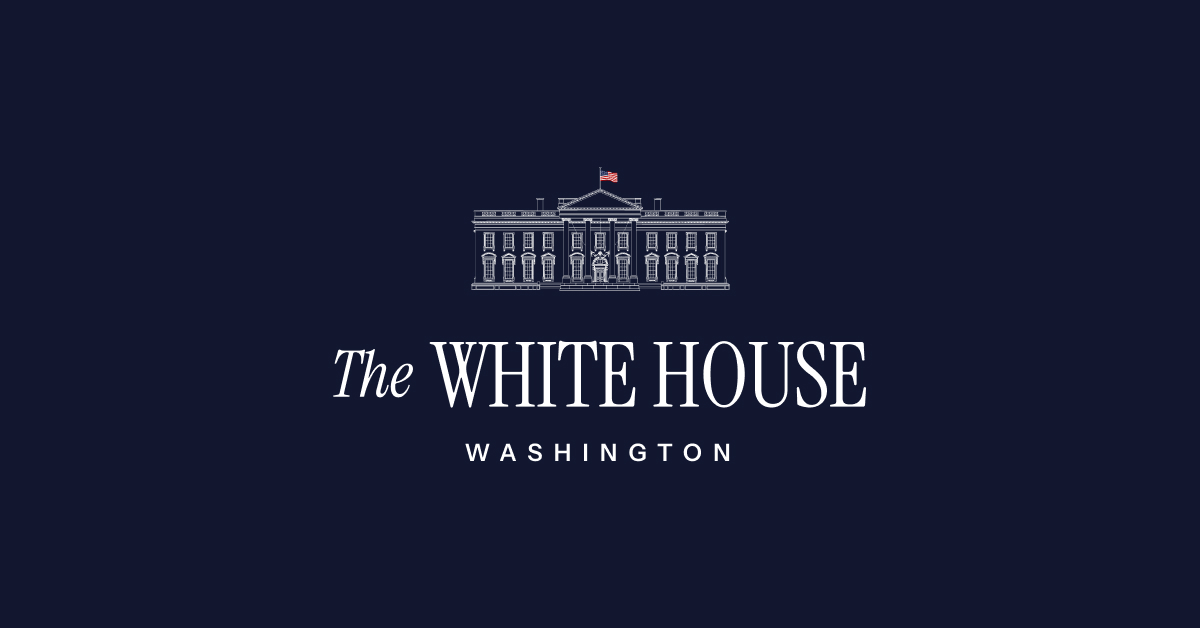There is no doubt that Ursula von der Leyen was under intense pressure on Sunday when she sat next to Donald Trump in the ballroom at his Turnberry golf course before what EU officials knew would be a gruelling round of trade talks.
As the European Commission president emerged less than an hour later to announce that the worst of Trump’s tariff threats had been avoided, the recriminations from inside the EU began almost immediately.
Under the deal agreed in Scotland, an economically devastating trade war has been prevented. Still, European leaders are eyeing up the cost to the bloc from being locked in to tariffs of 15% on most EU exports to the US, when they had previously averaged 4.8%.
French and German leaders, following in the footsteps of Hungary’s prime minister, Viktor Orbán, focused on this outcome, rather than the potential damage that could have been inflicted by a US president with an intense dislike for the EU.
The French prime minister, François Bayrou, was among leaders who thought Trump’s threatened 30% rate could at least be lowered to match the 10% tariff deal secured by the UK. He said the EU had capitulated and described Sunday as a “dark day”.
The irony of a leader beset by factional warring, berating another for failing to present a united front to the US, was lost on Bayrou. There were many in Brussels who thought the French prime minister might have taken a more emollient tone given that parliamentary infighting has prevented him from passing a long delayed budget bill.
And especially when Paris is often the cause of friction inside the EU’s Brussels headquarters. On this occasion, Bayrou objected to the EU threat of tariffs on US Bourbon, fearing that French wine and brandy producers might be caught in the crossfire.
Some insiders asked how the commission president could go nose-to-nose with Trump when the EU was, and remains, divided, with member states seeking carve-outs for their own vulnerable industries.
Von der Leyen can also say that most of the trade concessions, including a commitment to buy a large quantity of gas from US producers, matter little when the purchases were likely to be made anyway.
She is also hopeful that the deal can circumvent Trump’s obsession with the US pharmaceutical industry. The sector has been left out of all trade deals so far, which means no one yet knows what US tariffs on pharmaceutical imports will be. The Irish are especially fearful after accumulating much of the US offshore pharma industry in county Cork.
Brussels is hopeful that 15% will also be the tariff hit to EU-based pharma exports to the US.
David Henig, the director of the UK trade policy project at the European Centre for International Political Economy, said the result of Trump’s actions would probably hit trade and economic growth on both sides of the Atlantic, but only marginally.
“Nobody wins, there are unlikely to be big trade shifts, but the world keeps turning,” he said.
HSBC economists said the 15% tariff would be offset by a reduction in uncertainty hitting businesses that had been weighing heavily on trade, leaving the EU to face “a fairly marginal impact”.
There is also much left to negotiate on a deal, which at present is more like an impressionist painting than a clearcut photograph.
As the summer turns to autumn, von der Leyen must hope the German chancellor, Friedrich Merz, and Italy’s prime minister, Giorgia Meloni, refuse to join Bayrou in criticising the deal for fear of handing Trump even more negotiating power in the detailed phase.
Maybe the obvious weakness in the EU’s negotiating position will have the opposite effect by encouraging more leaders to consider changes put forward by the former Italian prime minister and European Central Bank chief, Mario Draghi, who estimated that internal trade barriers within the bloc amount to almost 50% on goods and 110% on services.
Draghi’s call for a collective endeavour on both investment and regulation is the best blueprint for leaders who know that pursuing sectional national interests is economically and socially illiterate.
The problem is that von der Leyen’s trade fudge – minimising the impact of Trump’s threats – will allow the EU to continue muddling through, and leave Draghi’s report to gather more dust.


